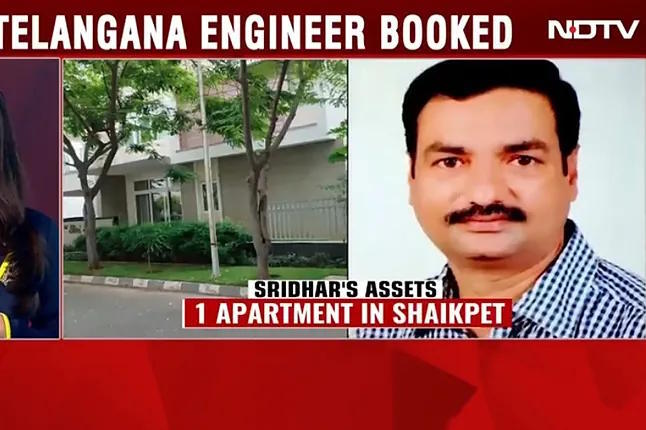Nune Sridhar, an engineer working for the local government of Telangana, a state in central India, spent many million rupees more on his son's wedding than he could earn with his salary in 20 years. This caught the attention of the Anti-Corruption Bureau (ACB) of Telangana. Sridhar, who earns around 50,000 rupees per month (500 euros), organized a luxury wedding in Thailand, also covering the travel expenses for all the guests.
Investigators began to trace his accounts and properties, uncovering a corruption scheme that had filled the engineer's pockets. Sridhar, who works in the Irrigation Department, had amassed a real estate empire.
This week, the news made headlines in India, which is giving extensive coverage to the case after the police arrested the engineer on Wednesday. The agents searched more than a dozen properties linked to Sridhar spread across various cities in Telangana: a villa in an exclusive neighborhood, three apartments, one of them over 400 square meters, 19 plots in a developable area, three three-story houses in a more rural area, agricultural lands...
"We have also found significant amounts of cash, stakes in several hotels, two vehicles, gold jewelry, and large bank deposits," the anti-corruption agency statement said. "A lawsuit has been filed for his disproportionate assets more in line with the lifestyle of a very wealthy businessman and not a government official."
Indian media have explained that all of Sridhar's fortune (more than 200 million rupees in seized assets, around two million euros) comes from a corruption scheme related to an irrigation project he supervised in the city of Kaleshwaram. A case that is also implicating other local officials from the government of Telangana, accused of alleged irregularities.
The project known as the Kaleshwaram Lift Irrigation Scheme, one of the largest of its kind in the world, features long water tunnels, aqueducts, underground surge pools, and large pumps. In total, it covers an approximate distance of 500 kilometers and was inaugurated in 2019. It was mainly designed to aid in cereal production in northern Telangana, but for years it has been under scrutiny after authorities found significant damages in the structure of three dams.
